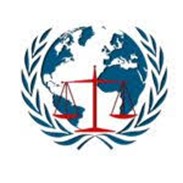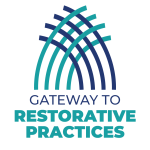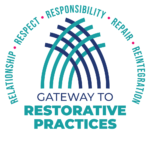For National Restorative Justice Week, I posted a favorite quote each day. Here are the five quotes I selected and how they connect to my role as a trainer and curriculum creator.
The first quote is from Howard Zehr, who is a key figure in modern restorative practices. I use his quote on the title page of RP 201: From ACEs to PACEs – Building Restorative Relationships.

“Restorative Justice is respect. Respect for all, even those who are different from us; even those who seem to be our enemies. Respect reminds us of our interconnectedness, but also of our differences. Respect insists we balance concerns for all parties. If we pursue justice as respect, we will do justice restoratively.”1
—-Howard Zehr, The Little Book of Restorative Justice
The second quote is from one of the first books I read on restorative justice and helped lay the foundation of using restorative circles in schools.
“A basic premise of restorative practices is that the increasingly inappropriate behavior in schools is a direct consequence of the overall loss of connectedness in our society. By fostering inclusion, community, accountability, responsibility, support, nurturing and cooperation, circles restore these qualities to a community or classroom and facilitate the development of character. As a consequence of fostering relationships and a sense of belonging, academic performance, too, flourishes.”2
—Bob Costello, Restorative Circles in Schools: Building Community and Enhancing Learning
The third quote I selected in recognition of National Restorative Justice Week is from RP 101: Introduction to Restorative Practices. Making things as right as possible after harm is a foundational piece of Restorative Justice.
“Restorative justice is a process to involve, to the extent possible, those who have a stake in a specific offense to collectively identify and address harms, needs, and obligations, in order to heal and put things as right as possible.”3
— Lorraine Stutzman Amstutz and Judy H. Mullet, The Little Book of Restorative Discipline in School: Teaching responsibility, creating caring climates.
My fourth quote is from the original restorative practices in schools training I developed in 2013. This quote is an excellent example of what restorative practices can do when implemented with fidelity.
“Restorative practice builds community, celebrates accomplishments, transforms conflict, rebuilds relationships that have been harmed, and reintegrates students who have been suspended or expelled.”4
— Jon Kiddle and Rita Alfred, Restorative Justice: A Working Guide for our Schools
My last quote in recognition of National Restorative Justice Week is also from RP 201. The authors of Restorative Justice in Education provide an excellent model for implementing restorative practices in schools. I’m using this book with my colleagues during our monthly collaboration.
“Being proactive in creating school climates where the well-being of every member is sought requires that restorative justice education facilitators return over and over to the core beliefs of interconnectedness, worth, and the well-being of all participants.”5
—Evans and Vaanderling, Restorative Justice in Education: Fostering Responsibility. Healing, and Hope in Schools
I hope these quotes have fostered more interest and information about restorative practices. I’m privileged to train educators who impact students about this life-changing practice.
Sources:
- Intercourse, PA: Good Books; 2nd Edition, 2015.
- International Institute of Restorative Practices, 2010. New edition available.
- Intercourse, PA: Good Books, 2005.
- Alameda County Health Care Services Agency, 2011, p. 9.
- Katherine Evans and Dorothy Vaanderling, NY: Good Books, 2016, 2022, p. 108.
- Image: https://nationaltoday.com/restorative-justice-week

